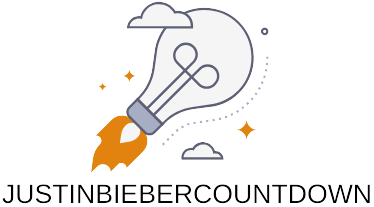Table of Contents
ToggleFinding motivation can feel like searching for a unicorn in a haystack. One minute, you’re ready to conquer the world, and the next, you’re binge-watching cat videos on the couch. It’s a rollercoaster ride of epic proportions, and everyone’s been there. But fear not! Unlocking that elusive drive doesn’t have to be a Herculean task.
The Importance of Finding Motivation
Motivation serves as a driving force behind actions and goals. It influences productivity and overall satisfaction in life. Feeling inspired leads to higher levels of achievement. Individuals often face challenges in maintaining that motivation, which can take a toll on progress.
Recognizing the significance of motivation fosters a proactive approach to personal growth. Understanding one’s purpose activates determination and perseverance. Studies show that motivated individuals experience improved mental health and resilience against stress.
Achievement, whether personal or professional, hinges on sustained motivation. Establishing clear objectives enhances focus and direction. Regularly reviewing goals keeps individuals aligned with their aspirations. Connecting with like-minded individuals cultivates a supportive environment that encourages motivation.
Daily habits, such as setting small, attainable milestones, keep momentum going. Celebrating even minor achievements reinforces positive reinforcement. Shifting from negative thought patterns to constructive ones sparks continual motivation and progress.
Developing a personal motivation strategy can streamline the path toward desired outcomes. Seeking inspiration from motivational quotes, success stories, or mentors builds a reservoir of encouragement. Balancing long-term goals and immediate rewards creates a fulfilling journey toward achievement.
Types of Motivation


Understanding different types of motivation can help individuals find what drives them most effectively. Two primary types of motivation stand out: intrinsic and extrinsic.
Intrinsic Motivation
Intrinsic motivation refers to engaging in an activity for its inherent enjoyment or personal satisfaction. People often pursue interests driven by curiosity or passion that foster a sense of fulfillment. For instance, a musician playing for the joy of creating music exemplifies intrinsic motivation. When individuals tap into this form of motivation, they frequently experience heightened creativity and persistence. It acts as a powerful force behind self-directed learning and personal improvement. Finding activities that resonate deeply provides essential fuel for maintaining focus and achieving long-term goals.
Extrinsic Motivation
Extrinsic motivation arises from external factors, such as rewards or recognition. This motivation often leads individuals to pursue goals based on incentives like praise or monetary compensation. An employee striving for a bonus shows how extrinsic factors can influence behavior. While this type of motivation can effectively drive performance, it may not lead to lasting satisfaction. Balancing external rewards with personal passion contributes to sustainable motivation. Recognizing external motivators can help individuals align their efforts with desired outcomes, enhancing overall productivity and engagement.
Strategies to Find Motivation
Finding motivation can become easier with the right strategies. Effective tactics help maintain focus and drive.
Setting Clear Goals
Establishing specific goals provides direction and purpose. Clearly defined objectives make progress measurable and attainable. Short-term goals can keep achievements tangible, while long-term goals create a vision for the future. Writing goals down enhances commitment, prompting regular reflection on progress. Monitor these goals continually to remain motivated and accountable.
Creating a Vision Board
Visual reminders often spark inspiration and clarity. A vision board displays images and quotes that represent personal goals and aspirations. Assembling this board can involve various collage materials like magazines or digital tools. Placement matters; keeping the board visible integrates it into daily life. Revisiting the vision board regularly reinforces motivation and helps realign focus.
Developing a Routine
Consistent habits create a framework for action. A daily routine can instill discipline, setting aside dedicated time for goal-related tasks. Structuring the day allows for productive engagement and minimizes the temptation of distractions. Adding small rituals, like morning reflections or evening planning sessions, reinforces commitment to goals. Establishing and adhering to routines enhances motivation by creating predictable patterns of success.
Overcoming Obstacles to Motivation
Finding ways to conquer hurdles in motivation can lead to more consistent productivity. Obstacles like procrastination and negative thoughts often derail progress.
Dealing with Procrastination
Procrastination affects many, disrupting focus and impeding task completion. Breaking tasks into smaller, manageable steps can make work seem less daunting. Using a timer to create defined work periods followed by short breaks enhances productivity. Setting firm deadlines also encourages urgency, helping to combat delays. Moreover, prioritizing tasks based on urgency can clarify what requires immediate attention. It’s essential to identify triggers that lead to procrastination and address them directly. Understanding these patterns allows for developing effective strategies to stay focused and motivated.
Managing Negative Thoughts
Negative thoughts can undermine motivation and self-esteem. Recognizing these thoughts as they arise is crucial for re-framing them positively. Journaling is an effective method to articulate feelings, transforming negative narratives into empowering affirmations. Surrounding oneself with supportive individuals fosters a healthier mindset and encourages resilience. Practice gratitude by noting achievements and positive experiences regularly. Adopting mindfulness techniques can also reduce anxiety and improve overall mental clarity. Ultimately, replacing negativity with constructive perspectives leads to an enhanced motivation and greater life satisfaction.






